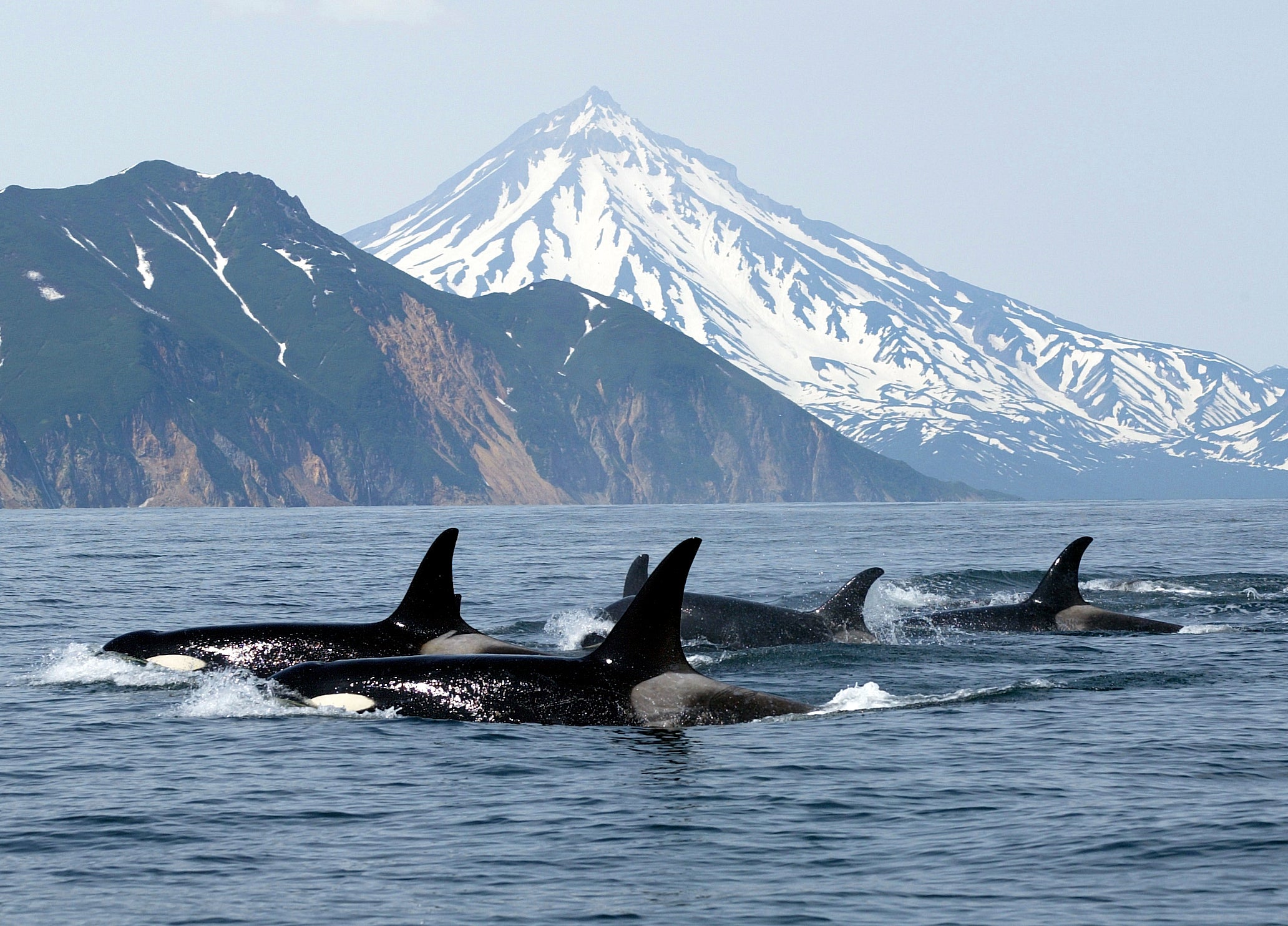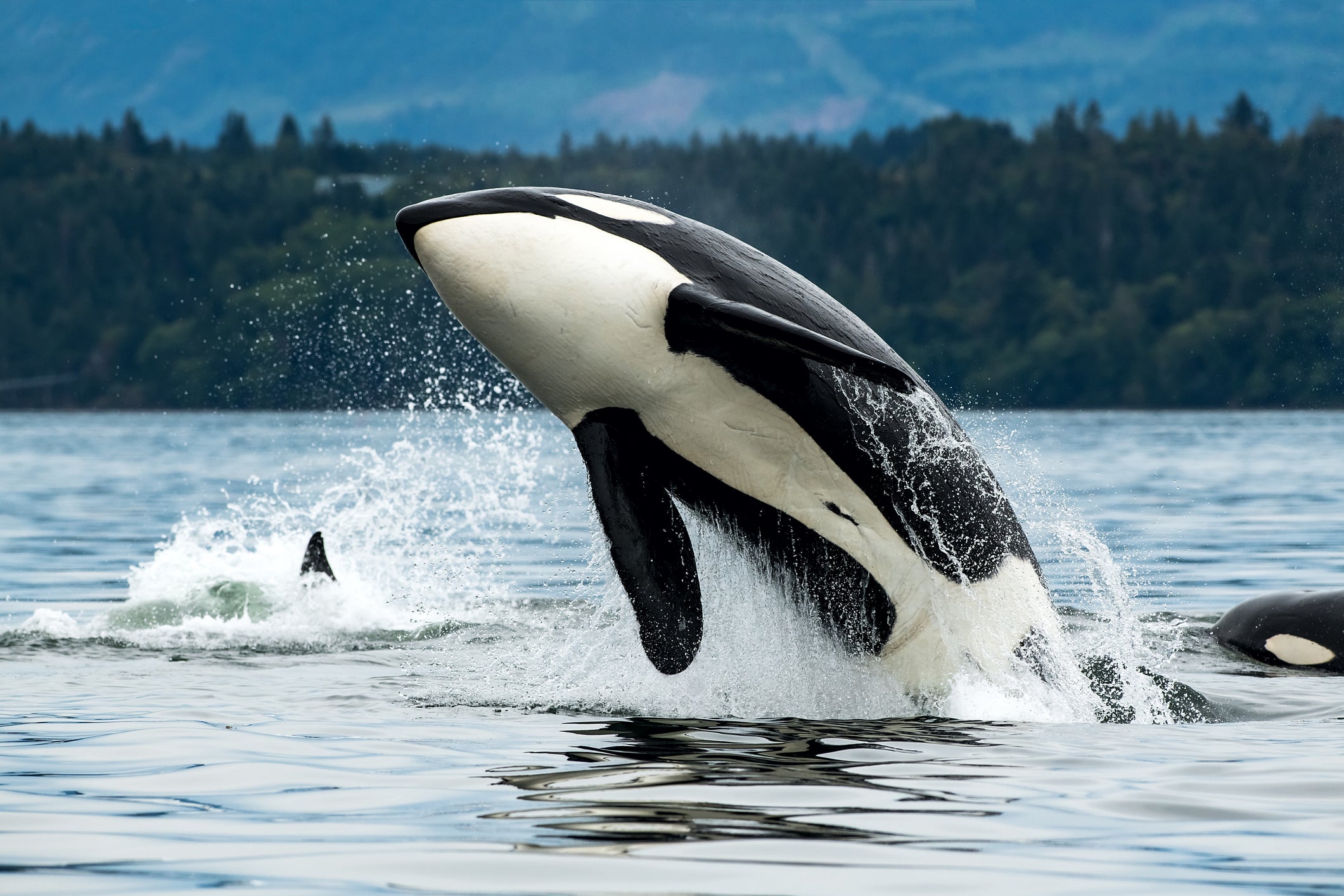Orcas, also known as killer whales, have been documented using lengths of seaweed to scratch each other's backs, a new study suggests.
Researchers observed the marine mammals detaching sections of kelp and then using them to massage their companions.
The process involves an orca biting off the end of a kelp stalk, positioning it between themselves and a partner, and then rolling the seaweed between their bodies for extended periods.
This intriguing behaviour was detailed in a study led by the Centre for Whale Research (CWR), in collaboration with the University of Exeter.
The paper, published in the journal Current Biology, is entitled: “Wild killer whales manufacture and use allogrooming tools.”
Scientists spotted the behaviour in drone footage of southern resident orcas in the Salish Sea, in the inland waters of the US state of Washington.
Whales of all ages were seen partaking in the tool-making, possibly to strengthen social bonds and promote skin health, researchers suggested.
CWR research director Dr Michael Weiss said researchers were “amazed” when they first noticed the behaviour.

Several whale species are known to engage in “kelping” – moving kelp with their heads, fins and bodies – likely for play, or possibly to remove parasites and maintain healthy skin.
The new discovery, dubbed “allokelping”, is different because the kelp is selected, trimmed and manipulated by two whales working together.
Dr Weiss added: “Bull kelp stalk is firm but flexible, like a filled garden hose, with a slippery outer surface. I suspect these features make it an ideal grooming tool.
“What I find remarkable about this behaviour is just how widespread it is in the population.
“Males and females of all life stages and from all three southern resident pods were seen using kelp in this way. All evidence points to it being an important part of their social lives.”
The team observed allokelping on eight out of 12 days included in the study and based on their observations, suspect that this behaviour may be universal in this population.
Whales were most likely to pair up to allokelp with close maternal relatives, and those of similar age.
Rachel John, a masters student studying animal behaviour at the University of Exeter, said: “This population of whales has been formally studied for 50 years – the best-studied orcas on the planet – and yet major new discoveries can still be made.

“We hadn’t noticed ‘allokelping’ before because the videos being collected from our previous aircraft weren’t of high enough quality, but the footage we’re getting now shows this behaviour in great detail.”
Commenting on the possible reasons for allokelping, Professor Darren Croft, of the University of Exeter and CWR’s executive director, said: “We know touch is really important.
“In primates – including humans – touch moderates stress and helps to build relationships.
“We know killer whales often make contact with other members of their group – touching with their bodies and fins – but using kelp like this might enhance this experience.
“It might also be important for skin health. Whales and dolphins have a variety of strategies to help them slough dead skin, and this may be yet another adaptation for this purpose.
“Brown algaes like bull kelp also have antibacterial and anti-inflammatory properties that may provide further benefits to the whales.”
Professor Croft said researchers were working to confirm the initial findings and “investigate the social and skin health benefits of this behaviour”.
Other orcas are known to rub their bodies on smooth stone beaches, possibly to remove dead skin and parasites, but the southern resident whales have not been seen doing this.
Funders of the study included the UK Natural Environment Research Council and the Orca Fund, a grant making fund created by Wild Fish Conservancy and administered by the Rose Foundation for Communities and the Environment.
Think you know 'Jaws'? Test your knowledge with this trivia ahead of the movie's 50th anniversary
Chimps share with children sense of curiosity for social interactions – study
Fossilised log reveals secrets of 120 million-year-old polar forests
Charles pays tribute to ‘resilience’ of Antarctic research scientists
Rare whale tooth fossil reveals secrets of ancient Iberian people







